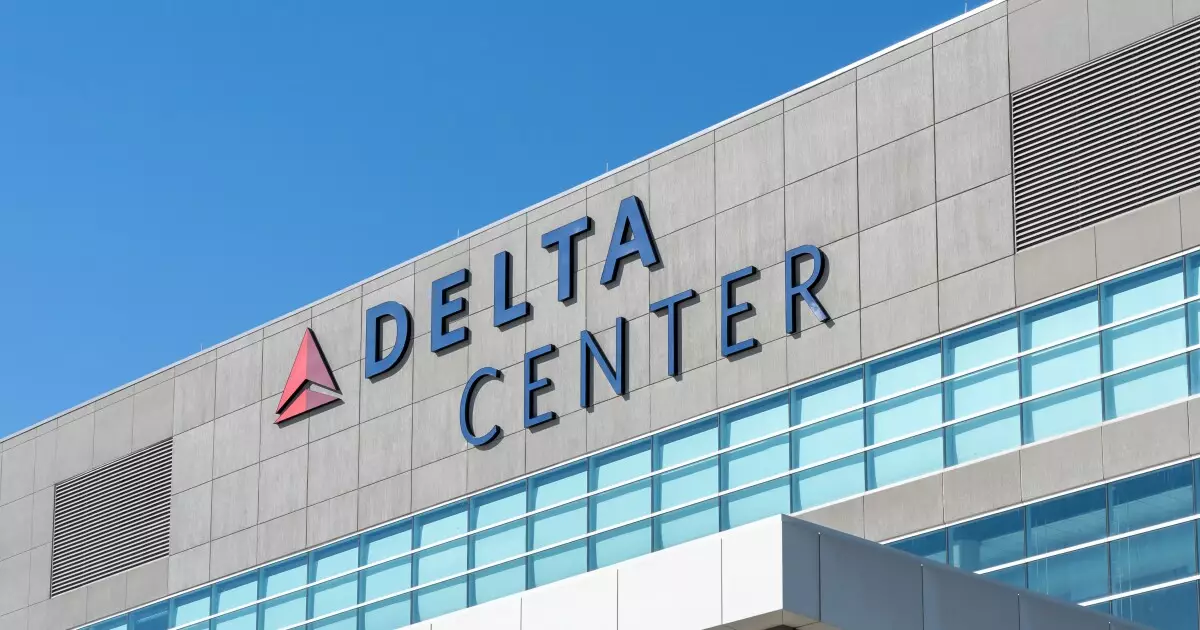The announcement of a $900 million sales tax revenue bond issue aimed at renovation and construction associated with the Delta Center in Salt Lake City raises serious questions about fiscal responsibility and urban strategy. At a time when local economies are still reeling from the impacts of the pandemic, pouring such an enormous sum into a single sports complex—or, more broadly, subsidizing professional sports—should be approached with skepticism. What follows is a critical analysis of this significant investment, touching on the potential pitfalls for Salt Lake City taxpayers and the future of public finance in urban America.
A Taxpayer’s Burden: The Hidden Costs of Sports Financing
Right off the bat, taxpayers need to be aware of the financial implications of this bond issue, especially considering the 0.5% increase in sales tax that was passed to finance it. While the sponsors tout the projected $1.2 billion generation from this marginal tax hike over 30 years, the hidden costs can easily overshadow the promised revenue. Taxation to fund entertainment facilities often disproportionally impacts lower-income residents who may struggle to absorb the additional costs associated with everyday purchases—like groceries—while upper-income citizens typically reap the benefits of enhanced entertainment options.
Critics are quick to point to studies suggesting that sports team relocations often bring empty promises of economic benefits. With over-reliance on revenue from affluent consumers rather than well-rounded economic strategies, the gamble is stark. If the Utah Jazz or the newly relocated Utah Mammoth leaves Salt Lake City for greener pastures, replacing their revenue and the resulting consumer engagement becomes an uphill battle. The net bond proceeds, capped at $900 million, may fall short of the desired revitalization if economic conditions shift unfavorably.
The Flawed Promise of Jobs and Growth
It’s worth mentioning the commonly peddled narrative that sports venues create jobs. Unfortunately, these jobs are often low-wage, part-time positions that don’t provide the sustainable economic growth that cities should be aiming for. Additionally, once the stadium is built, the economic windfall touted by proponents can be an illusion—a financial mirage, if you will. The event-based nature of sports leads to sporadic bursts in economic activity rather than a steady stream of income that revitalizes downtown areas. While Goldman Sachs has taken on the role of senior manager for this deal, it’s imperative to question the long-term economic forecasts and whether they have the best interests of Salt Lake’s residents at heart.
Making matters worse, experts have expressed skepticism about the necessity for such grandiose renovations. The existing Delta Center, built in 1991, has already served its purpose and, although updates are necessary for attracting top-tier events, many are left wondering if a multi-million dollar renovation is justified when the funds could be funneled into other public needs—such as housing, education, or public transport.
Future Municipal Credit Health in Jeopardy
The implications for Salt Lake City’s credit could also be dire. Rating agencies like Moody’s have deemed the first lien bonds A1, but this assumes ongoing economic stability and growth in pledged revenue collections. Should any curveballs arise—like an economic downturn, or an unplanned exit of a major sports team—the city could be looking at downgrades that tarnish its financial reputation and impact future bond issues. Concerns about the ability to cover all improvements due to potential shortfalls in funding create further risk that could ripple through the municipal finance world.
Furthermore, the reliance on a singular source of revenue—sales tax—is fraught with risks. When unforeseen circumstances arise, such as pandemics or natural disasters that impact consumer spending, the projected revenue could dry up swiftly, leaving taxpayers holding the bag for unpaid bonds and unmet promises. Are Salt Lake City officials prepared to face the wrath of the citizens when such risks materialize?
Public Sentiment and Civic Engagement
Interestingly, the deep-seated enthusiasm for professional sports often obscures the public’s voice in significant financial decisions like this bond issue. How many citizens feel actively engaged as stakeholders in what amounts to a corporate welfare scheme? The absence of public discourse, or at least meaningful debate, makes one wonder if urban planners and city councils are operating in a bubble—disconnected from the residents whose tax dollars are on the line.
Instead of taking a multi-faceted approach to urban development that encompasses community needs, local government focuses heavily on what looks shiny and glamorous: a sports arena. Sustaining a vibrant downtown should hinge on diversification, focusing on cultural, educational, and social centers—not merely banks, bars, and sports venues that fail to provide balance. The prioritization of this kind of investment risks alienating those who do not identify with the glitz and glamour of professional sports, disenfranchising audiences who feel marginalized.
Ultimately, while the Salt Lake City bond issue presents a buoyant front, the underlying risks and potential fallout reveal a troubling picture for taxpayers and citizens alike. Urban growth should center on inclusive growth—crafted from the voices of the community, rather than dictated by interests perched at the heights of corporate power.


Leave a Reply